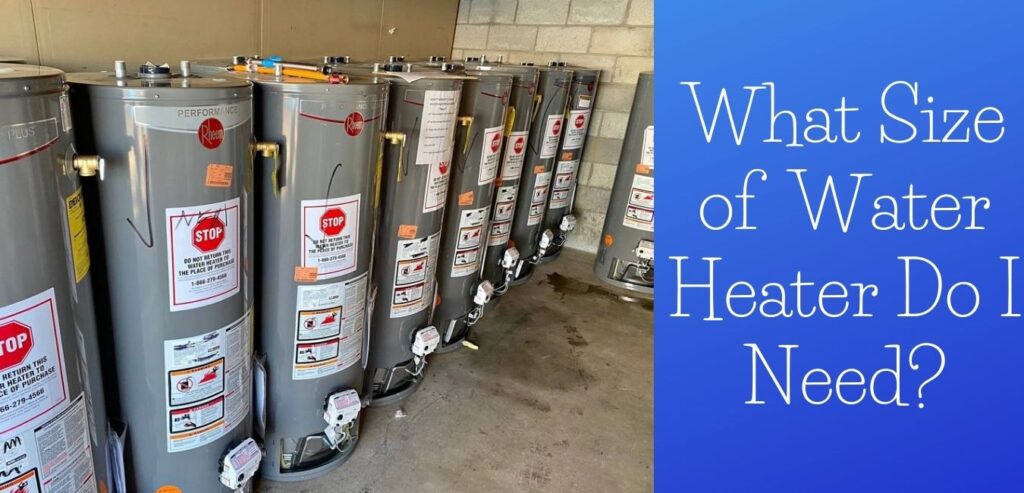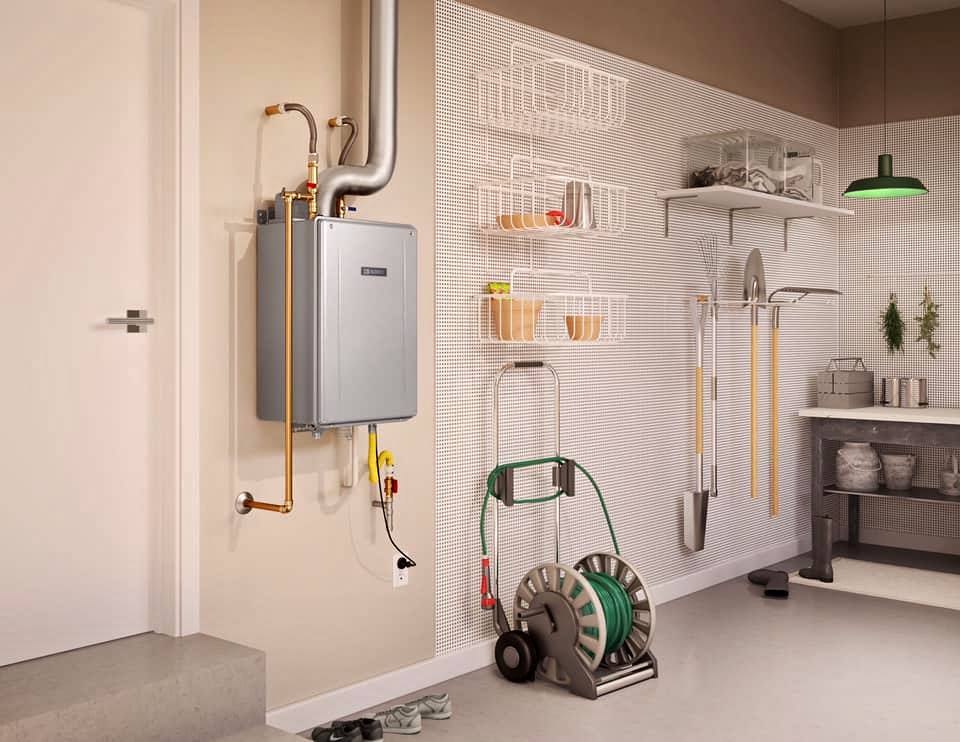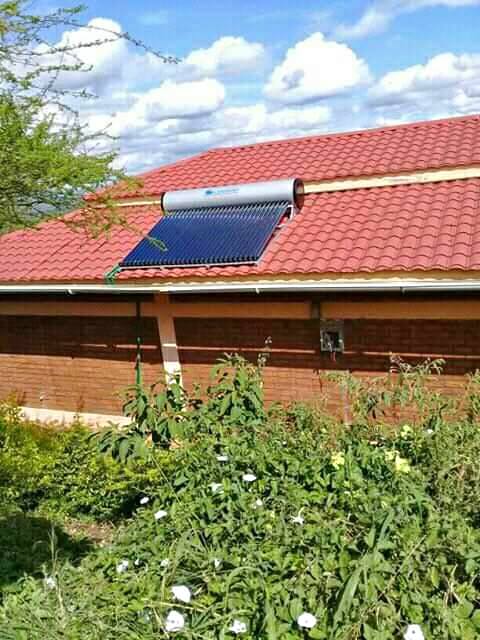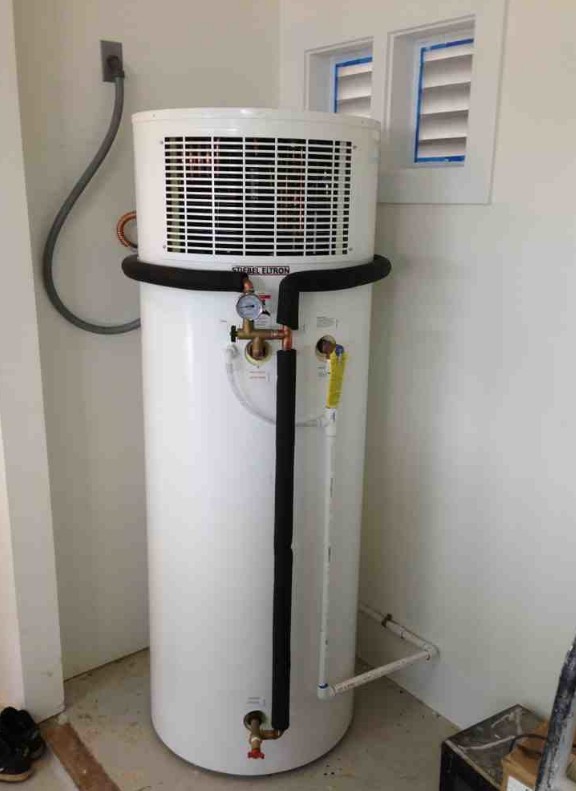Having the right size of a water heater can help you save a significant amount of money that would otherwise go to energy bills.
However, determining the right size is always a challenge for most people.

If you’ve been wondering about the correct size water heater for your household, please continue to the end of the article.
Here you’ll learn everything you need to know so that your next purchase of a water heater will be seamless.
Quick Navigation in this Resource
Factors that Determine the Sizing of a Water Heater
Understandably, there isn’t a standard size for everyone. Several factors determine the size of the water heater each household needs. Let’s look at these factors.
1. Household Size
A family of two would need less heated water compared to a family of six people.
For example, a family of between 2 to 4 people would use about 50 gallons of hot water daily. On the other hand, a family of 5 to 7 people would need about 80 gallons of hot water daily.
This means that the size of the water heater for these two different families would differ significantly.
2. Hot Water Usage
People use hot water differently. Some families clean dishes using hot water while others use cold water.
A standard dish washing machine uses about 6 gallons of water to clean the dishes.
If you have small children who require hand washing every few hours, it means you would have to use more hot water than a family without kids.
3. Peak Hour Demand
Peak hour is the hour when almost everyone is using hot water simultaneously. This happens mostly in the mornings when adults are preparing to work while children are getting prepared for school.
Assuming everyone spends about 10 minutes in the shower, you’d expect each of them to spend about ten gallons of hot water. Now, multiply the number of gallons by the number of people using the shower.
You may also need to use hot water to do laundry at this peak hour and clean breakfast dishes. Assuming everyone is using the water simultaneously, you’d need to have a large water heater to meet all your heating requirements.
4. First Hour Rating
When buying a water heater, you need to consider its first hour rating. This means the amount of hot water the heater can produce within its first hour of usage.
Of course, this would determine whether every member of your household can use hot water simultaneously for different purposes, especially during peak hours.
5. Source of Fuel
Your source of fuel also determines the size of your heater.
Fuel can be natural gas, propane, solar energy, or electricity. With an understanding of the fuel you want to use on your water heater, it’s possible to find a size that can work correctly.
6. Space
Another primary consideration is the space within your home. It’s very disappointing to have a huge water heater but lack the space to store it.
When sizing your water heater, it’s essential first to consider the space available in your home.
Now that we know the factors to consider, let’s look at the types of water heaters available.
Types of Water Heaters
There are three tank systems, and all of these have different sizing of water heaters. Let’s take a look at each.
1) Tankless /demand type water heaters
Tankless water heaters have inbuilt coils that heat water, ensuring that you have hot water at all times. These heaters are more efficient compared to traditional water heaters.
However, these water heaters are more expensive and have a limitation on the flow rate per minute.


Tankless water heaters are the most compact making them ideal if you’re concerned about storage space.
These water heaters are also economical in water usage, making them a favorite among large-sized families. If you’re wondering, what size tankless water heater do I need, here is how to calculate it.
When sizing a tankless water heater, you’d need to establish the desired flow rate per minute as well as the highest temperature needed at the said flow rate.
Therefore, you want to make sure you understand the amount of water your household uses simultaneously at peak hours. Then, you’d also have to know the amount of energy required to heat the water.
As an estimate, every person would use about 3 gallons of water per minute in the shower. If you have a large Jacuzzi in the bathroom, then you’d need more hot water. Dishwashing would require about a gallon of water per minute.
Regarding temperature rise, you want to make sure you know how cold the water in your location gets. In warmer areas, your heater needs less energy to heat the water than in the colder areas.
Luckily for you, most tankless water heater sellers have a calculator that will ask you to input data about flow rate per minute and highest temperature rise per minute. The calculator will then do the math and recommend a size and brand to fit your needs.
2) Solar water heaters

Solar water heaters are economical and eco-friendly. To determine the correct size of a solar water heater system, you need to know the collector area’s size and the storage space.
Twenty square feet for the first two family members is ideal. You need between 8 – 14 square feet for every additional person depending on your location in the US.
As a rough estimate, a family of 1 – 3 people uses about 60 gallons of water regarding storage volume. 3 – 5 people would require about 80 gallons of hot water daily, while a larger family would require the bigger tanks.
3) Storage and heat pump water heaters

Storage and heat pump water heaters are cheaper to buy than tankless heaters. These heaters are ideal for people with large families as they heat more water at any given time.
The main disadvantage with these heaters is that they aren’t as energy-efficient.
When sizing storage and heat pump water heaters, you need to determine its first hour rating, heating element, tank full capacity, source of heat, and size of your source of heat.
The source of heat for a storage water heater can be either a burner or element.
Conclusion
In a nutshell, the size of your water heater is determined by many factors, including the size of your household, water usage, and space to store the water heater.
Heaters exist as tankless, solar systems, storage, or heat pump water heaters. This guide exhaustively answers the question, what size water heater do I need.